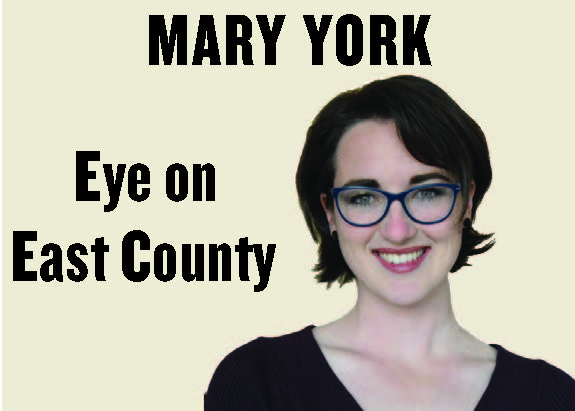I do not know how your Facebook has been looking lately, but mine has had a tough week.
Maybe you, like me, find that Facebook is the easiest way to keep in touch with people who are no longer geographically close, or who no longer run in the same circles as you do. It is an incredible network that allows us to stay connected to each other when time and distance work so hard to keep us all apart.
However, lately, it seems like Facebook has driven more of a wedge between people than it has built bridges. It has become quite the tool for destruction in the hands of many I know.
“So somebody tell me where y’all draw the line,” a friend wrote after posting a picture of President Trump’s Tweet in which he called his former White House aide, Omarosa Manigault Newman, “that dog.” My friend was incensed.
“If you will support or defend a man who openly and unashamedly calls women dogs, you should get off my friend list, cause uh, we ain’t friends.”
Naturally, debate ensued.
For context, this friend of mine is a college-educated young woman who was raised in a conservative Christian community. She is thoughtful, a critical thinker. She and I are both millennials. I know where she is coming from because I have walked her path, we grew up in the same soil.
Unsurprisingly, the dissent on her Facebook post came predominantly from the generation that raised us, a generation of conservatives who unapologetically support our president. Instead of condemning his words, response to the president’s Tweet, and other comments he has made, has been one of justification or distraction. It was even suggested that those who call out the president’s degrading language but remained silent under Obama’s pro-abortion policies are hypocrites who pick and choose their political battle grounds.
“How about Obama’s refusing to support the Born Alive Child Protection Act, probably the most humane bill to ever go through Congress,” one woman responded, a woman who brought up two bright young men and was a much a mother to me at times as she was to them. “Its rejection by anyone is so reprehensible it makes this stupid tweet sound like a compliment by comparison. Did they unfriend Obama supporters? No one says anything about that.”
And she has a point. Everyone tends to be willing to overlook some evils in society. We only care when our specific cause enters the ring – our pet peeve evils.
What is yours? The economy? Housing? Equality? Civil rights? Pro-life or pro-choice?
How many of us really get livid about the HIV rates in the country, or the decline in public education or the one in five children that will go hungry in the U.S. every year?
See? We all have our pet evils, our crusades of social righteousness.
Because Facebook debates rarely happen between just two people, another voice chimed in.
“It gets tricky because we’re not talking about people disagreeing about things that are perfectly appropriate to have differing opinions on (policies, laws, etc.),” she said. “We’re talking about people who refuse to acknowledge objectively wrong behavior… Most of what I see is excuse-making for the abhorrent comments, attacks on people who question them, and a consistent disregard for human decency. While I agree, it’s valuable to be friends with people who disagree about ideas and policies, I think that value is heavily dependent on those people’s ability to be reasonable.”
And with that, she brought us back to the original point of my friend’s post and the real crisis that our country is facing – not a crisis of leadership, of civil rights, of racism or sexism or dangerous partisanship.
The real problem with this country is us. We the people have cut ourselves off from the best chance we have at protecting this great nation: dissenting voices.
This would certainly not be the first time our nation has faced great division of thought.
In the early 1800’s, the Great Triumvirate, or the Immortal Trio, as John C. Calhoun, Henry Clay and Daniel Webster were called, held rapt attention in the House and Senate for decades, leading the debate for the three factions of Americans at the time: western settlers, northern businessmen and southern slaveholders.
Although these men were ostensibly opposed to each other’s ideals through much of the early nineteenth century, they were known to be cordial to each other in private. And, remember, these were not simply “matters of policy” being so fiercely fought. The issue of the day was slavery – a matter of policy, but also a matter of morality and ethics, of right and wrong.
More importantly, however, these three men did not let their vehement disapproval of each other’s platforms stop them from engaging in open debate.
In fact, on days when these men were slated to speak, crowds would gather into the senate to hear them, despite the lengthiness of their speeches, and copies of their addresses were often printed in papers to be read around the country.
Perhaps this is simply what the world looked like before Netflix, but I imagine that people were different back then.
Americans were hungry for depth of thought and breadth of discussion, something that can only be mined for when one takes the time to dig far into someone else’s well of ideologies.
It takes patience, it takes focus, it takes attention to detail and a listening ear.
It means sitting still for a while and listening to someone with whom you disagree most adamantly.
And, like a bridge, good discussion cannot be built if one side continues to loosen the bolts and irons, it cannot be complete if one party walks away.
Everyone in that Facebook discussion possessed a thread of truth, but because no one consented to recognize mutually agreed upon truth for fear of losing ground, progress screeched to a halt.
What if the woman in that conversation had said, “Yes, those words are unbefitting a man in such a high office. I support his policies, but our nation can do better, and we will do better in the future.”
What if my friend has begun her post as a discussion instead of the closing punctuation of a predetermined thought? What if she had invited discourse, opening the floor for a discussion of how we should judge our leaders – morality of behavior vs. effectiveness of office?
A real conversation could have been had that went deeper than merely our own personal frustrations at perceived injustices in our society had we the grace to listen to each other.
What if we, like those who clammored into the senate, had scoured the discussion looking for truth and not just for someone to back up our own opinions?
The way we talk about our values has a great effect on how we perceive them – language is powerful, after all.
We talk about defending our principles as though they were a fortress constantly under siege. We become defensive quickly, we remove ourselves from people who may not share our views so as not to be associated with or influenced by the enemy.
But if the things we value as a society are the source of our strength and our goodness, we would want to share them, not horde them away. And to share something, you must reach out to someone who does not have it already.
To really create change, we must reach out to those who disagree with us, with patience and respect acting as ambassadors for the ideals we so hope to advance.
Of course, you do not have to like everyone who disagrees with you – but can we all agree to stop unfriending people on our Facebooks or blocking them from our lives? You would not “unneighbor” someone who lives in the house next to yours. The people around us are here to stay and it is up to us – both parties – to shape those relationships.
We have a great tool at our fingertips to share information and ideas and ways of thinking across the globe in seconds. But how will we use it?
Will we use Facebook to build or to break?
Will we set aside our personal fury for the pursuit of truth and change, or will we isolate ourselves in the choir loft?
When you decide for yourself, come on over and talk to me. I love a good discussion.














